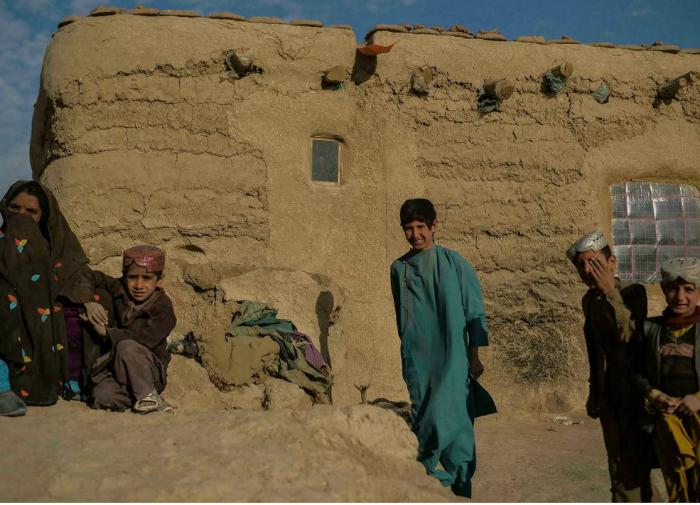Afghanistan: A whole year of executed hopes
Afghanistan has seen a lot of violence during the recent two weeks. The country has not seen so much violence under the rule of the Taliban* movement that seized power in the country in August 2021.

Tajikistan will try to resolve Afghan conflict through negotiations
A wave of bloody violence has swept across Afghanistan having left dozens of dead and wounded. Hundreds left their homes and lost breadwinners. Such a background was clearly not part of the plan for Talibs* as they were preparing for the all-Afghan meeting of Islamic Ulema theologians in Kabul for the past two or three months. The meeting was supposed to be held in an attempt to strengthen the political status of the Taliban* to subsequently bring peace in the country and international recognition closer. However, everything went down the drain.
Shortly before the Ulema forum, which started working on June 30, the Balkhab district rebelled. This is a Hazar-populated district in the Sari-Pul province. Taliban's comrade-in-arms, local commander Mahdi disagreed with the appointment of Pashtun Taliban* to key positions in the Islamic Emirate.
Thousands of soldiers were sent to suppress the rebels. Fierce fighting continued in Balkhab for a week. Several villages were destroyed. Their inhabitants fled to neighboring provinces to escape from the Talibs*. The Kabul authorities were forced to make excuses: traitors were trying to split the movement from within.
Such an explanation was laughable.
The fact remains that the state mechanism of the Taliban* is not ready to take into account the interests of numerous ethnic groups of Afghanistan. Ethnic conflicts tear the country apart. The calls for peace on the part of the leaders of the Taliban movement* are in no way consistent with real life.
Hostilities also intensified in the Tajik-populated Panjshir Valley, where the National Resistance Front (NRF) headed by Ahmad Massoud operates. Back in August 2021, the Taliban* offered Massoud to enter the new government, but he declined and subsequently explained why. It is necessary to take into account the interests of all nationalities, otherwise there is no prospect for the future at all.
Nevertheless, it was decided to hold the gathering of loyal Ulema. They were collected all over the country — as many as 3,500 people arrived. The absolute majority of them represented the Pashtun ethnic group. Needless to say that their mission was reduced to confirming the correctness of the political course of the Taliban*.
In fact, the meeting approved of the aggressive domestic policy of the Taliban*. It also endorsed their decision to close schools for girls over the age of six, which immediately caused an uproar not only in Afghanistan but also abroad. Sheikh Ansari produced the most depressing impression, though. He said that all enemies of the Islamic Emirate should be decapitated immediately.
A year ago, the long-term governor of the province of Herat, Ismail Khan, a Tajik, barely evaded such fate during the victorious offensive of the Taliban*. It was his past that saved him. During the 1980s, he was in the vanguard of the Mujahideens who fought against the Soviet troops. His closest associate was Ahmad Shah Massoud, the father of the current leader of the National Resistance Front, Ahmad Massoud.
After the capture of Herat, the Taliban* handcuffed the former governor, took him to the Iranian border and, threatening with reprisals, forced him to seek asylum in the neighboring country. A month ago, Ismail Khan illegally returned to Afghanistan. A few days after the Kabul Ulema Forum, he staged an attack on the headquarters of the National Guard of the Islamic Emirate in Herat. Dozens of soldiers were killed and wounded in the attack.
In addition, Ismail Khan said that he was ready to join forces with the leader of the National Resistance Front, Ahmad Massoud, who controlled the Panjshir Valley. Massoud had already had the support of Uzbek Marshal Dostum and Ato Muhammad Nur, the former governor of the northern province of Balkh. As one can see, the geography of the opposition alliance has been expanding and so has it military potential.
The Western Front may become a new serious test for the Taliban*. After all, they will have to deploy additional military contingent there either from Northern Balkh or Panjshir. In reality, nothing will come of this: both regions already experience armed clashes with opposition forces. Up to 20,000 Talibs* are permanently stationed in Panjshir alone.
If it were not for the material and moral assistance to the Panjshir Tajiks from neighboring Tajikistan, they would not have been able to effectively resist the Taliban*. The National Resistance Front is headquartered in Dushanbe.
In early July, the Front and its allies took the initiative to hold peace talks on Afghanistan in the Tajik capital of Dushanbe, inviting representatives of Kabul authorities there.
Noteworthy, the initiative was voiced a few days after Russian President Vladimir Putin's visit to Tajikistan. After a year of bloody confrontation, a new vector of settlement in Afghanistan is being formed. Its peculiar feature is the direct participation of forces that are opposed to the current government in Kabul.
*Terrorist organisation, banned in Russia
Subscribe to Pravda.Ru Telegram channel, Facebook, RSS!


